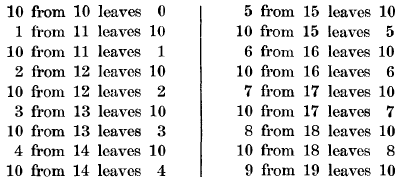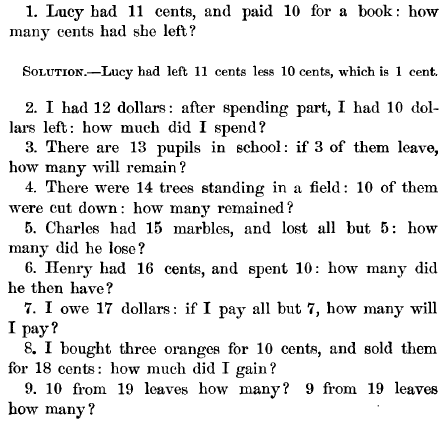 Ray's New Primary Arithmetic
Ray's New Primary Arithmetic
Ray's New Primary Arithmetic
Ray's New Primary Arithmetic



 Ray's New Primary Arithmetic
Ray's New Primary Arithmetic
Ray's New Primary Arithmetic
Ray's New Primary Arithmetic

Teach children to subtract numbers from up to 19.
Have children practice until they perfectly master the task.
STEP 1

STEP 2
STEP 3
STEP 4
STEP 5
Have children copy, solve, and recite the following table:
STEP 6
